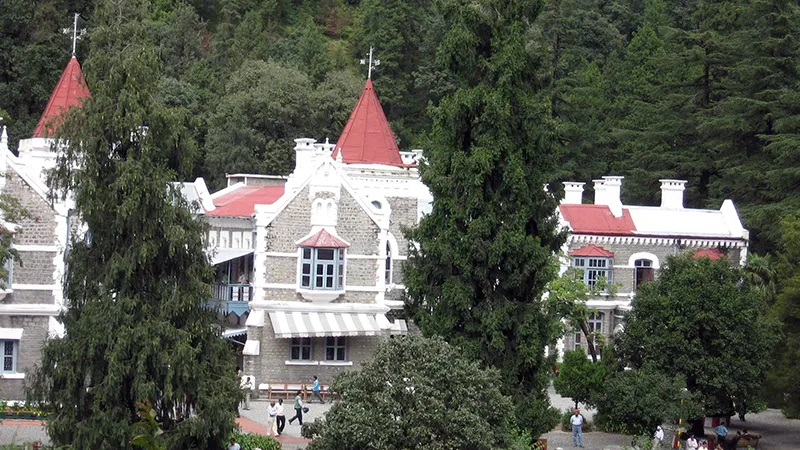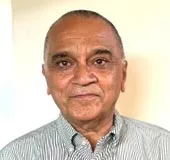The curious case of Uttarakhand shows that getting elected to political office confers powers but no responsibilities.
The otherwise placid, hilly paradise was rocked by frenzied politicking, as Congress dissidents lit a fire under their own government, even as forest fires lit to clear shed pine leaves gusted up clouds of carbon and heat. Tellingly, citizens were more concerned with managing the forest fires than the fallout of the political shenanigans.
The Harish Rawat-led Congress government still has one year to go. But it fell, because former chief minister Vijay Bahuguna and Mr Rawat’s ex-buddy from Garhwal, Harak Singh Rawat, and seven others pulled the plug on it. Their timing was cannily disruptive since the annual budget could not be approved — politically effective but irresponsible from a citizen’s viewpoint.
What followed was a comedy of high-level bungling. The Speaker, Govind Singh Kunjwal, disqualified the dissident Congressmen the anti-defection legislation for voting against the government. But it is alleged that he did so only after the President of India had already put him and the state Legislative Assembly under suspended animation by dismissing the government.
Also, subsequent to the budget approval snafu, governor Krishan Kant Paul had already directed on March 18 that the state government prove its majority on the floor of the House on March 28. Why then did the President of India (read the Union government) scramble to dismiss the government on March 27, just a day before the vote of confidence?
The Congress approached the Nainital high court against the dismissal of their government. The honourable single-judge ordered on March 29, somewhat unusually, that the Congress test its numbers in the House on March 31 even though the Legislative Assembly had been suspended by the President of India. Expectedly, this order was stayed on appeal by a division bench of the court.
Politically motivated manipulation of constitutional powers is not new. But consider how low representative democracy has fallen and how remote politics has become from the people who chose to remain indifferent to the political machinations. It was not always like this.
Leading up to November 2000, when the state was formed, the mood was upbeat and passions inflamed. The hilly areas of Garhwal and Kumaon had revolted against the allegedly quasi-colonial rule from Lucknow — the erstwhile city of nawabs, sheermal, galawati kebabs and the capital of Uttar Pradesh. Cut to 2016, and the dismissal of a duly elected government evokes no popular response at all beyond gossip at nukkad teashops. Apparently, the average citizen gets galvanised politically only when it is time to vote.
Consider also how dysfunctional our political parties are. A significant section — more than a quarter of the Congress MLAs — could not resolve their grievances through inner-party governance systems and chose to create a constitutional crisis to hit back at their party. They did not act out of high moral principles. Nor were there difference with the party around policy, legislation or programmes. Their rebellion was borne out of perceived insufficient recognition by the party of their merit, effort and political standing. Equally, it was irresponsible of the Congress, to ignore the growing dissidence, secure in the belief that the anti-defection legislation could contain dissidence and that there was still one more year before citizens could vote to call it to account.
Sadly, the five-yearly spells of public accountability do not protect citizens sufficiently from irresponsible governments. Can we do better?
Being empowered to recall recalcitrant public representatives can make public representatives responsive to citizens. But Indian voters do not have this power, unlike in North America and Switzerland.
Technological improvements can help. Biometric identification can cheaply and correctly verify discontented voters who could digitally communicate their intent to recall, thereby triggering a re-election. The “Save the Net” campaign last year and subsequently supporters of Facebook/Internet.org, flooded Telecom Regulatory Authority of India with electronic messages. Voters could similarly message the Election Commission.
A second option to hold politicians to account is to devolve political office and powers closer to where voters live so that people can actively participate in overseeing an elected politician. The constitutional provisions have existed since 1992, but they have never been implemented in good faith and with full earnestness. Despite the rhetoric, there is little political appetite to let go of centralised powers in the Union and the state governments — both of which function remotely from people.
Our centralised, political ecosystem and architecture have created political interests at the national and the state level.
Rarely does a village-level politician graduate to politics at the state level and even less so to the national level. The India-Bharat class divide exists even in politics.
True to their class ethic, state-level politicians perversely prefer to lose power to an opposing party, in the hope that it would come back to them one day, rather than see power trickle away permanently down to local levels. Consider that the consequence of a state government being dismissed is not the empowerment of local governments, to pick up the slack and fill the vacuum, but instead power is sucked back to Delhi where all state-level politicians aspire to work.
Would the Uttarakhand Congress dissidents have been as ready to rebel and trigger the dismissal of their government if the consequences were that elected leaders at the town and village levels would get vested with the executive powers of erstwhile state ministers and carry on working? Consider also whether the Union government would have been as willing a participant in the dismissal game, if the consequences meant executive powers being transferred lower rather than to the national level.
Petty palace politics and dodgy moves will continue to blight political stability and retard effective executive action, unless we rejig the institutional structure to generate political incentives. Citizens must be able to hold governments to account in real time.
This commentary originally appeared in The Asian Age.
The views expressed above belong to the author(s). ORF research and analyses now available on Telegram! Click here to access our curated content — blogs, longforms and interviews.




 PREV
PREV


